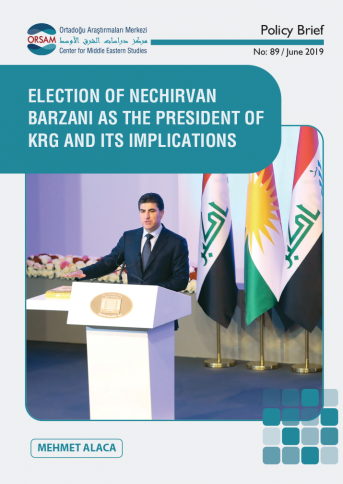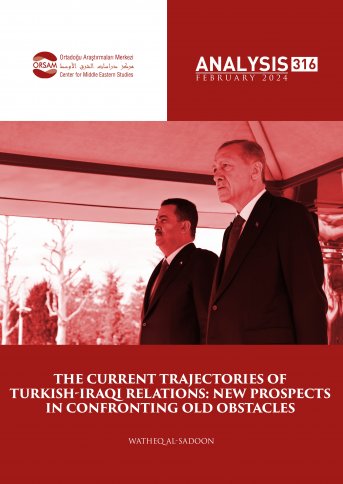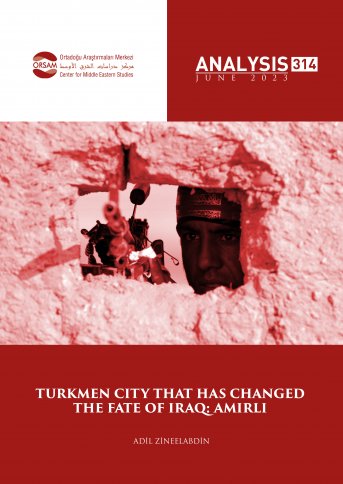
Election of Nechirvan Barzani as the President of KRG and its Implications
Prime Minister of the Iraqi Kurdistan Regional Government (KRG) and Vice President of the Kurdistan Democratic Party (KDP) Nechirvan Barzani took the vote of 68 out of 81 members of the 111-membered KRG parliament on 28 May, and ascended to the position of President which had been vacant since Masoud Barzani left office in November 2017. Five candidates, namely Umed Abdulsalam Qadir, Muhammad Heme Salih Umer, Rebwar Aziz Mustafa, and Hiwa Abdullah Xidir as well as Nechirvan Barzani, competed for the regional presidency. Working as an executive for nearly 20 years, Nechirvan Barzani was sworn in on June 10, 2019, and moved to a new stage in his political career along with the Presidential post of KRG.
Although there have been nearly 8 months since the end of the parliamentary elections held in the KRG on September 30, 2018, the government has not been established. Gathering in Erbil on 14 January as part of the government negotiations which have been continuing since November, KDP and PUK officials agreed to improve relations between the two parties, as well as relations with Baghdad, to focus on government building and to establish a joint committee for Kirkuk. Later on, KDP, led by Masoud Barzani, the PUK established by former Iraqi President Jalal Talabani and the Goran (Change) Movement founded by Nawshirwan Mustafa, who died in 2017, announced that the government would be formed all together and agreed that Masrour Barzani was to be Prime Minister and Nechirvan Barzani President of the KRG. However, PUK, which agreed with the KDP on forming a government and on the presidency, did not attend the parliamentary session by boycotting the presidential vote.
Following the independence referendum in September 2017, the 52-year-old experienced politician Nechirvan Barzani is known to be capable of reestablishing diplomatic relations with Baghdad and other actors, but it can also be said that he will face great challenges inside. For Barzani who will have to deal with a series of matters such as the establishment of the new government, the disputed territories and the Kirkuk governor post issue, the economic crisis, the increasing PKK presence in the KRG and Sinjar, the Ministry of Justice issue in the Iraqi cabinet, the unification of the Peshmerga forces, increased corruption and nepotism, PUK’s decision to boycott is among the leading ones. New crisis between KDP and PUK seems to make Barzani’s job more difficult, with the possibility of deepening interrelated problems and instability in the region.







